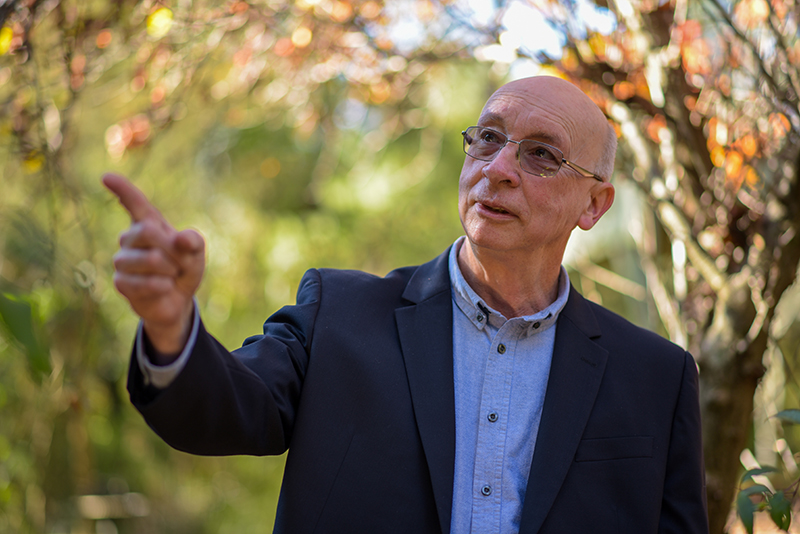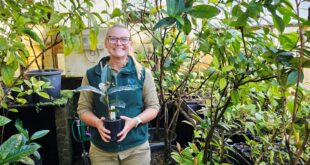
“He who knows only his own side of a case, knows little of that” – John Stuart Mill
The first time I meet Peter Baldwin we are at the Blackheath Philosophy Forum. It’s Saturday afternoon, on the lingering tail of a golden Blackheath autumn, and the community hall is packed.
It’s thrilling, in a way, that hundreds of people are willing to give their weekend afternoons to a debate on the value of The Enlightenment – that profound seventeenth and eighteenth century transformation that saw a seismic shift in the central ideas of Western thought and culture, an opening up to scientific values and methodologies, and a rejection of the dominance of religious superstition. This shift, however, was not only in philosophical, scientific and religious thinking, but also in the openness and scope of dialogue, and it is this, our capacity for fearless critical debate, which is at issue for Baldwin in his discussion with fellow panellist, Ted Sadler, today.
We are still living through the reverberations of this movement, and part of Baldwin’s argument is that we need to actively preserve The Enlightenment’s legacy: that we must protect the right of critique in the face of attempts to stymie debate. A capacity to freely interrogate issues, to see which ideas might sink or swim on the merits of those ideas, rather than by enslavement to tradition or a need to prop up the status quo, is as fundamental to human advancement as is scientific and industrial mastery. A major interest of Baldwin since leaving federal politics has been the development of DebateGraph, a software application that provides a way to map out the positions that have purchase on an issue under debate, in order that decisions might be made with the most nuanced understanding possible.

This graph finds its most pithy distillation in the above remark from the nineteenth century philosopher and political economist, John Stuart Mill: if we know only one side of a discussion, then regardless of how extensive that knowledge may be, we remain ignorant. In an age of shrinking broadcast media, ‘fake news’ and sound-bite politics, this provides us with an important reminder that, regardless of our opinions, we need to broaden the knowledge base that forms those opinions.
In line with this desire to be representative of diverse positions, speakers on The Enlightenment at the Blackheath Philosophy Forum have voiced views ranging from Frankfurt School Neo-Marxist critique through to the kind of staunch defence of the values of scientific advancement and the freedom to voice ideas that Baldwin himself offers. Baldwin has firsthand experience of the importance of open, critical discussion. As an outspoken activist in the 1970s, he spoke out against the corruption of the right-wing of the Labor party, and for his efforts was savagely bashed. Ironically, the images of his bruised face, which dominated the press after the incident, significantly increased reformist pressure on the party.
Prior to Baldwin’s entry into federal politics, he was working on computer software. He was, he says, ‘frustrated with the quality of a lot of political debate’. At the time:
“philosophy academics were working on how you can graph or display the structure of argumentation … Say you’ve got some disputed issue, you can put forward a proposition and you can mount arguments in support and opposition, and they in turn depend on premises, and each of those premises in turn might depend on other premises, so you get this kind of tree hierarchy of argument, a map … I thought it would be interesting to see if you could put that on the web, so that such a structure could be built up collaboratively, so that people who take different viewpoints on a contentious issue can contribute to the structure, and you can juxtapose the different points of view, and show how they’re derived, and what premises they depend on.”
An important element of this is not only that differing aspects of each issue are brought to light, but how each issue ‘connects with broader conceptual and philosophical issues’, allowing ‘the relationships, the dependencies’ to be illustrated. Our ideas, rely not only on certain experiences, facts and arguments, but these arguments themselves rely on philosophical and ideological positions which are themselves open to debate. Thus, regardless of any position one might occupy on specific issues under debate, be they Baldwin’s opinions on free speech, or Trump’s American isolationism, rendering the line of dependencies on which such positions rely is a fascinating and vital project.
Peter Baldwin spent several decades in politics, including six years as a parliamentarian during the Hawke/Keating administration, and if there is any place where a quantification of relevant positions on an issue would seem vital, it’s in the mire of federal politics, where even the most well-intentioned can quickly find themselves in crocodile country i.e. when you’re up to your ears in crocodiles, you soon forget you came in to drain the swamp. It borders on a utopian dream to imagine our politicians discarding sound-bite politics and the interests of corporate lobby groups, in favour of drawing from, and contributing to, an everevolving pool of ideas. It is not, though, impossible – we can, indeed, we must, demand more of our political representatives.
Debategraph has been used in a number of international projects involving the European Union, the CNN Amanpour Program, the UK Foreign Office, the United States government and, most recently, the Bill and Melinda Gates Foundation. We can only hope to see this kind of approach taken up more broadly in the social and political spheres of Australian life.
Berndt Sellheim



